Categories
Recent Posts
- FECAFOOT Crisis: Eto’o refuses to sign contract of government-appointed coach
- Manyu Traditional Rulers Association and Mgbe: Wisdom and Knowledge of Jurisdiction is Fundamental
- Hummels stuns Mbappe and PSG to take Dortmund to Champions League final
- US brands Israel border closures ‘unacceptable’
- Asylum seekers in UK ‘hide or flee to Ireland’ for fear of deportation to Rwanda
Archives
- May 2024
- April 2024
- March 2024
- February 2024
- January 2024
- December 2023
- November 2023
- October 2023
- September 2023
- August 2023
- July 2023
- June 2023
- May 2023
- April 2023
- March 2023
- February 2023
- January 2023
- December 2022
- November 2022
- October 2022
- September 2022
- August 2022
- July 2022
- June 2022
- May 2022
- April 2022
- March 2022
- February 2022
- January 2022
- December 2021
- November 2021
- October 2021
- September 2021
- August 2021
- July 2021
- June 2021
- May 2021
- April 2021
- March 2021
- February 2021
- January 2021
- December 2020
- November 2020
- October 2020
- September 2020
- August 2020
- July 2020
- June 2020
- May 2020
- April 2020
- March 2020
- February 2020
- January 2020
- December 2019
- November 2019
- October 2019
- September 2019
- August 2019
- July 2019
- June 2019
- May 2019
- April 2019
- March 2019
- February 2019
- January 2019
- December 2018
- November 2018
- October 2018
- September 2018
- August 2018
- July 2018
- June 2018
- May 2018
- April 2018
- March 2018
- February 2018
- January 2018
- December 2017
- November 2017
- October 2017
- September 2017
- August 2017
- July 2017
- June 2017
- May 2017
- April 2017
- March 2017
- February 2017
- January 2017
- December 2016
- November 2016
- October 2016
- September 2016
- August 2016
- July 2016
- June 2016
Featured
Most Commented Posts
 4 Anglophone detainees killed in Yaounde
4 Anglophone detainees killed in Yaounde
19 comments Chantal Biya says she will return to Cameroon if General Ivo Yenwo, Martin Belinga Eboutou and Ferdinand Ngoh Ngoh are sacked
Chantal Biya says she will return to Cameroon if General Ivo Yenwo, Martin Belinga Eboutou and Ferdinand Ngoh Ngoh are sacked
13 comments Anglophone Nationalism: Barrister Eyambe says “hidden plans are at work”
Anglophone Nationalism: Barrister Eyambe says “hidden plans are at work”
12 comments The Anglophone Problem – When Facts don’t Lie
The Anglophone Problem – When Facts don’t Lie
12 comments Largest wave of arrest by BIR in Bamenda
Largest wave of arrest by BIR in Bamenda
10 comments
Latest Tweets
Featured
-

FECAFOOT Crisis: Eto’o refuses to sign contract of government-appointed coach
-

Manyu Traditional Rulers Association and Mgbe: Wisdom and Knowledge of Jurisdiction is Fundamental
-

Hummels stuns Mbappe and PSG to take Dortmund to Champions League final
-
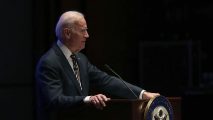
US brands Israel border closures ‘unacceptable’
-
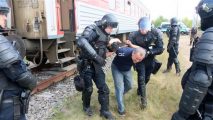
Asylum seekers in UK ‘hide or flee to Ireland’ for fear of deportation to Rwanda
-
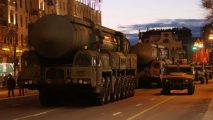
Russia to hold nuclear drills following ‘threats’ from West
-

Southern Cameroons Crisis: General Sagon among 3 killed in Ngoketunjia
© Cameroon Concord News 2024
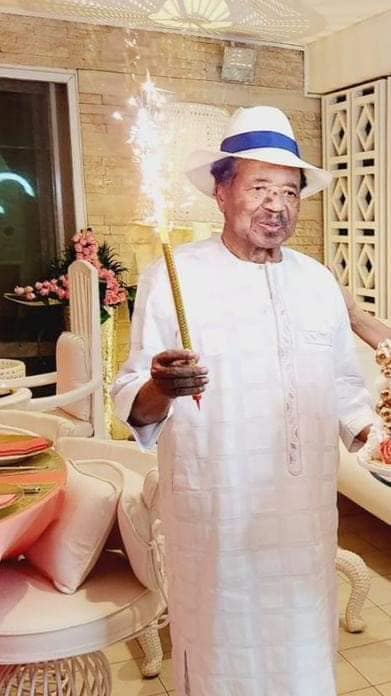
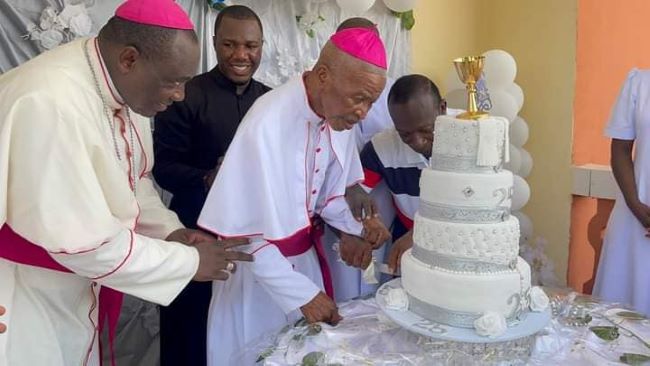



20, September 2019
MRC says no to Biya dialogue until Kamto is released 0
The opposition Movement for the Renaissance of Cameroon (MRC) party says it will not participate in the much-touted national dialogue to end the country’s Anglophone crisis unless the government first releases its imprisoned leader, Maurice Kamto.
The MRC issued a statement Wednesday, warning that the dialogue proposed by President Paul Biya in a televised speech last week won’t include them without Kamto and his allied political leaders and MRC activists, among them people who, like Kamto, have been detained for seven months. They faced rebellion, incitement to insurrection and other serious charges, some of which carry the death penalty.
Further, the MRC said its president called for national dialogue as early as December 2016 during a meeting in Ngaoundéré, as the Anglophone crisis in Cameroon began to escalate and the first protesters were rounded up or killed. The MRC believed that dialogue alone was “likely to prevent the outbreak of a civil war,” the party said in its statement.
That wasn’t what happened in Cameroon, as a peaceful movement to address grievances in the English-speaking Northwest and Southwest regions – led by lawyers, teachers and doctors – was met with Biya’s iron fist and escalated in some areas into a full-blown armed secession.
Prime Minister Joseph Dion Ngute, who is set to lead the proposed dialogue, has said no plan for a separate Ambazonia state is on the table.
In addition to demanding the prisoner release, the MRC has a list of action items and concerns that includes Ngute’s role because, they say, his government and party affiliation cast doubt on his impartiality and will lead to an “unbalanced” dialogue.
“The direct involvement of the defense and security forces, on the one hand, and the armed groups, on the other hand, poses a particular problem,” the MRC added, noting that it sends a dangerous message for armed forces to engage in political processes.
Source: Africa Times